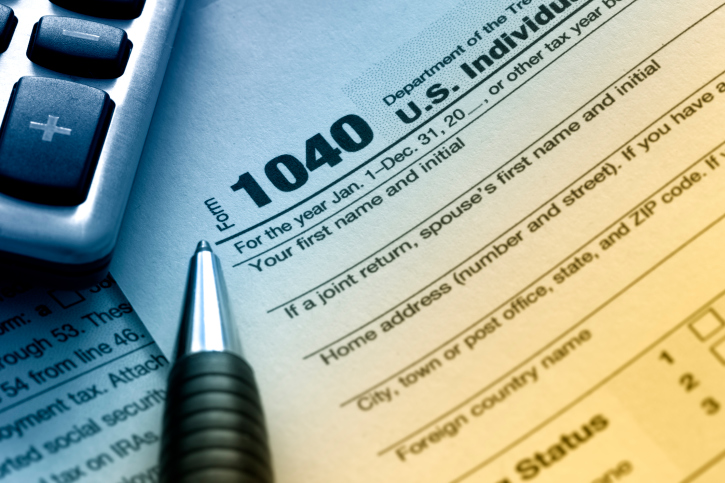3 Reasons Why Your Mortgage Lender Might Ask for Your Tax Returns – And Why You Should Provide Them
 After you have completed the initial loan application and have signed the preliminary loan disclosures, your mortgage loan application will generally receive a preliminary prequalification. This prequalification will be based in large part on your ability to provide documentation to support your statements on your loan application, including your stated income and assets. Typically, a lender will include a request for least the last two to three years of your income tax returns with this documentation. There are several reasons why a lender may need to review your tax returns and why you should provide requested documentation as soon it is requested.
After you have completed the initial loan application and have signed the preliminary loan disclosures, your mortgage loan application will generally receive a preliminary prequalification. This prequalification will be based in large part on your ability to provide documentation to support your statements on your loan application, including your stated income and assets. Typically, a lender will include a request for least the last two to three years of your income tax returns with this documentation. There are several reasons why a lender may need to review your tax returns and why you should provide requested documentation as soon it is requested.
To View All Sources Of Income
Your mortgage lender will typically request a copy of your W2 tax forms, which will show your salary and compensation from your employer. However, the W2 form will not show all sources of income that you may receive. For example, rental property income, dividend income and even alimony or child support are just some of the many types of income that you can document through your tax returns.
To Average Income From Self-Employment
Most lenders will require self-employed borrowers to document their income through their tax returns. They will receive income as well as business-related expenses on the tax return. It is common for mortgage lenders to average this type of income for the previous two to three years. Typically, this is the only way that self-employed income is verified for mortgage purposes.
To Comply With Underwriting Guidelines
There are various types of mortgage loans that you may apply for, including stated income loans and low documentation loans. While not every type of loan that you apply for will require you to submit tax returns, some loans will have this as a firm requirement. Your loan request simply will not be reviewed and approved until you provide the required documentation to the lender.
If you want to be approved for your mortgage, it is important to comply with lender requirements. Providing documentation as soon as it is requested can speed the application process up, and your personal income tax returns may only be some of several documents that you will be required to submit to the underwriter for your loan request. You can speak with your mortgage representative about questions you have regarding required documentation, and you can work diligently to comply with underwriting information requests.
 Many seniors are looking for a great way to improve their financial situation. Retirement or semi-retirement can be difficult due to the need to live on a fixed income. Some may have been unable to save enough in their working years, or their accounts may have been hit hard by stock market fluctuations. Still others are feeling the effects of inflation and the rising costs of medical care and general living expenses. If you are like many other seniors, you may not have a huge cash reserve available in your bank account, but you may have a sizable nest egg in your home. The fact is that you can tap into that equity without selling your home or taking on a mortgage payment when you apply for a reverse mortgage.
Many seniors are looking for a great way to improve their financial situation. Retirement or semi-retirement can be difficult due to the need to live on a fixed income. Some may have been unable to save enough in their working years, or their accounts may have been hit hard by stock market fluctuations. Still others are feeling the effects of inflation and the rising costs of medical care and general living expenses. If you are like many other seniors, you may not have a huge cash reserve available in your bank account, but you may have a sizable nest egg in your home. The fact is that you can tap into that equity without selling your home or taking on a mortgage payment when you apply for a reverse mortgage. When applying for a new home mortgage, many loan applicants initially consider applying for a 30-year fixed rate mortgage. This is perhaps the most common and traditional type of mortgage available. It allows you to enjoy the opportunity to pay for your home over the course of 30 years with equal payments every month. While this is one option, there are actually multiple choices available. For some applications, a variable rate mortgage may be more advantageous. If you are comparing the options between a fixed rate and a variable rate mortgage, you may consider a few points.
When applying for a new home mortgage, many loan applicants initially consider applying for a 30-year fixed rate mortgage. This is perhaps the most common and traditional type of mortgage available. It allows you to enjoy the opportunity to pay for your home over the course of 30 years with equal payments every month. While this is one option, there are actually multiple choices available. For some applications, a variable rate mortgage may be more advantageous. If you are comparing the options between a fixed rate and a variable rate mortgage, you may consider a few points.